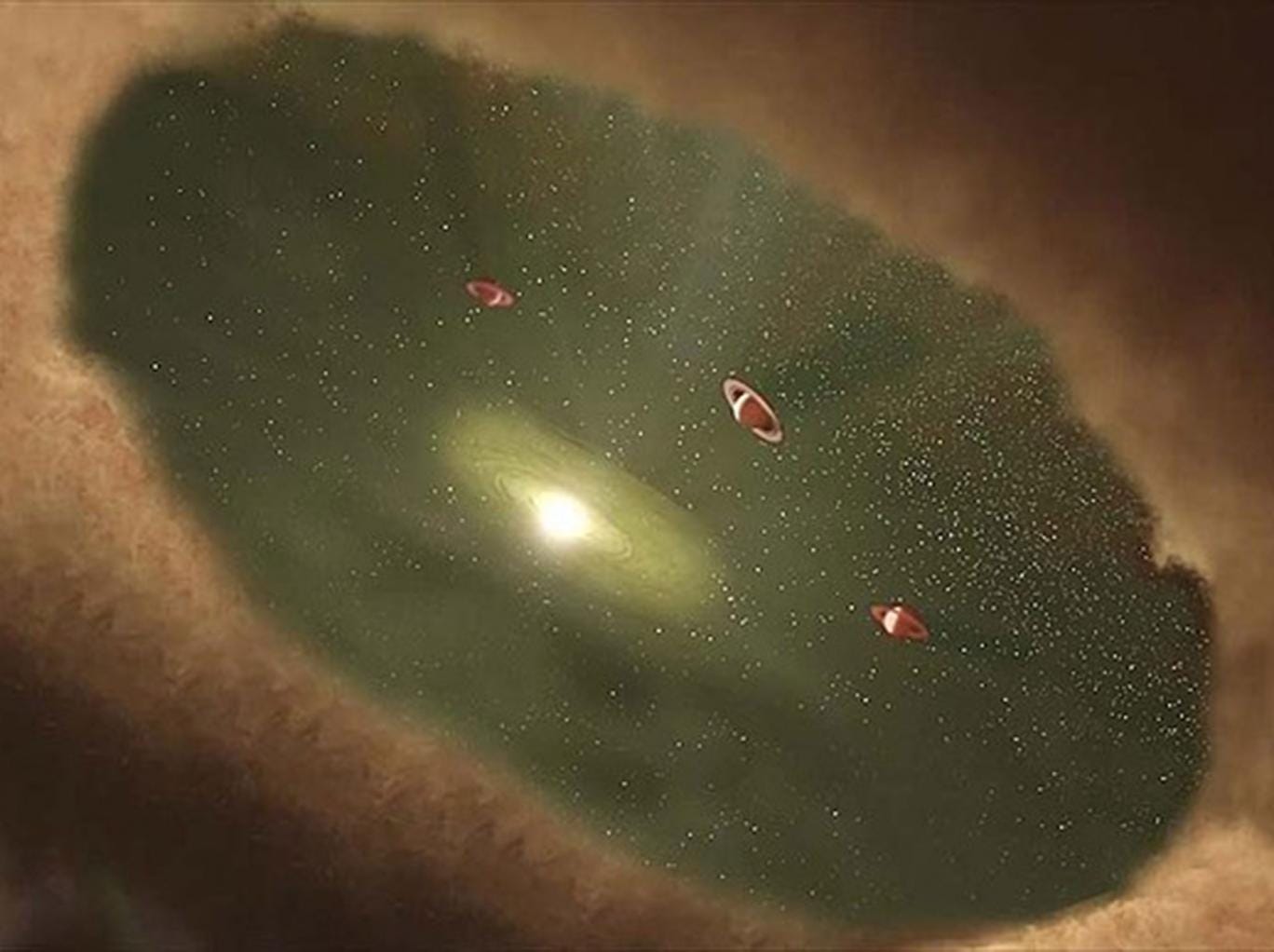
Humans have seen the beginning of a planet for the first ever time.
An international team have directly observed the process, which happens as dust and gas accumulate, sticking together and forming a new object.
Scientists have found 1,900 planets outside of our solar system. But all of them have finished forming, and so the process of their birth has never been documented.
But a star has been found, named LkCa and 450 light years from Earth, that looks as if it is about to produce its own planet. It has a disc of dust and gas surrounding it and the dust is disturbed in such a way as if something is about to be birthed from it.
"This is the first time we've imaged a planet that is definitely still in the process of forming,” said including the University of Sydney's Professor Peter Tuthill in a statement. "The difficulty had been that when you have indirect evidence, there are always alternate explanations that might fit the data.”
New equipment allows scientists to capture pictures of objects that are close to a nearby star, which are much brighter than the thing next to them. But it remains difficult to spot such objects, because the atmosphere around the object is so whipped up.
"When you look through the Earth's atmosphere, what you're seeing is cold and hot air mixing in a turbulent way that makes stars shimmer," Professor Laird Close, who advised on the research, said. "To a big telescope, it's a fairly dramatic thing; you see a horrible looking image.”
But the relatively new Large Binocular Telescope was purpose-built for spotting such objects, which allows scientists to see them much more sharply.
They could then confirm the discovery by seeing the deep red light that is emitted from the hot process of planets forming. Such light was seen coming from both the star and the planet itself.
"It's fantastic to see these cutting-edge instruments now enabling us to make such exciting discoveries," Professor Tuthill said.
The paper, 'Accreting Protoplanets in the LkCa 15 Transition Disc', is published in Nature.







